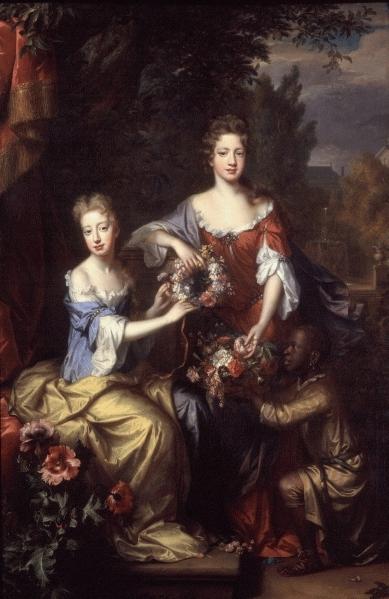Quote
"the reader will find a more true and accurate account of the customs and manners of the several nations with whom this lady conversed, than he can in any other author."
Links to the Encyclopedia:
I was going, like common editors, to advertise the reader of the beauties and excellencies of the work laid before him: To tell him, that the illustrious author had opportunities that other travellers, whatever their quality or curiosity may have been, cannot obtain; and a genius capable of making the best improvement of every opportunity. But if the reader, after perusing one letter only has not discernment to distinguish that natural elegance, that delicacy of sentiment and observation, that easy gracefulness, and lovely simplicity, (which is the perfection of writing) and in which these Letters exceed all that has appeared in this kind, or almost in any other, let him lay the book down, and leave it to those who have.
The noble author had the goodness to lend me her Ms. to satisfy my curiosity in some inquiries I had made concerning her travels; and when I had it in my hands, how was it possible to part with it? I once had the vanity to hope I might acquaint the public, that it owed this invaluable treasure to my importunities. But, alas! the most ingenious author has condemned it to obscurity during her life; and conviction, as well as deference, obliges me to yield to her reasons. However, if these Letters appear hereafter, when I am in my grave, let this attend them, in testimony to posterity, that among her contemporaries, one woman, at least, was just to her merit.
There is not any thing so excellent, but some will carp at it; and the (sic) rather, because of its excellency. But to such hypercritics I shall not say ************.
I confess, I am malicious enough to desire, that the world should see to how much better purpose the LADIES travel than their LORDS; and that, whilst it is surfeited with Male travels, all in the same tone, and stuffed with the same trifles; a lady has the skill to strike out a new path, and to embellish a worn-out subject with variety of fresh and elegant entertainment. For, besides the vivacity and spirit which enliven every part, and that inimitable beauty which spreads through the whole; besides the purity of the style, for which it may justly, be accounted the standard of the English tongue; the reader will find a more true and accurate account of the customs and manners of the several nations with whom this lady conversed, than he can in any other author. But, as her ladyship’s penetration discovers the inmost follies of the heart, so the candour of her temper passed over them with an air of pity, rather than reproach; treating with the politeness of a court, and the gentleness of a lady, what the severity of her judgment could not but condemn.
In short, let her own sex at least, do her justice; lay aside diabolical Envy, and its brother Malice [Footnote: This fair and elegant prefacer (sic) has resolved that Malice should be of the masculine gender: I believe it is both masculine and feminine, and I heartily wish it were neuter.] with all their accursed company, sly whispering, cruel back-biting, spiteful detraction, and the rest of that hideous crew, which, I hope, are very falsely said to attend the Tea-table, being more apt to think, they frequent those public places, where virtuous women never come. Let the men malign one another, if they think fit, and strive to pull down merit, when they cannot equal it. Let us be better natured, than to give way to any unkind or disrespectful thought of so bright an ornament of our sex, merely because she has better sense; for I doubt not but our hearts will tell us, that this is the real and unpardonable offence, whatever may be pretended. Let us be better Christians, than to look upon her with an evil eye, only because the giver of all good gifts has entrusted and adorned her with the most excellent talents. Rather let us freely own the superiority, of this sublime genius, as I do, in the sincerity of my soul; pleased that a woman triumphs, and proud to follow in her train. Let us offer her the palm which is so justly her due; and if we pretend to any laurels, lay them willingly at her feet.
December 18.. 1724. M. A.
Sources
Text taken from Lady Mary Wortley Montagu, Letters of the Right Honourable Lady M_y W_y M_e: Written, during her Travels in Europe, Asia, and Africa, vol. 1 (London: B. Dodd, 1776), p. iii-viii. Full text from evans tcp.
